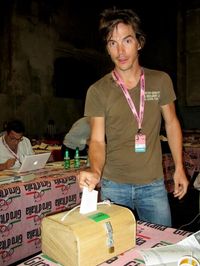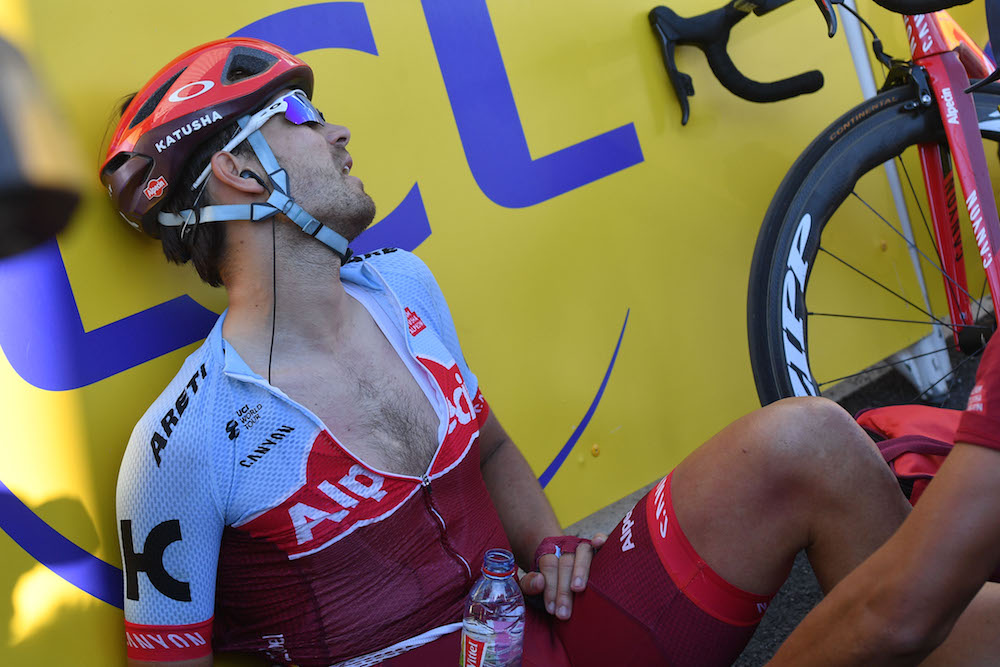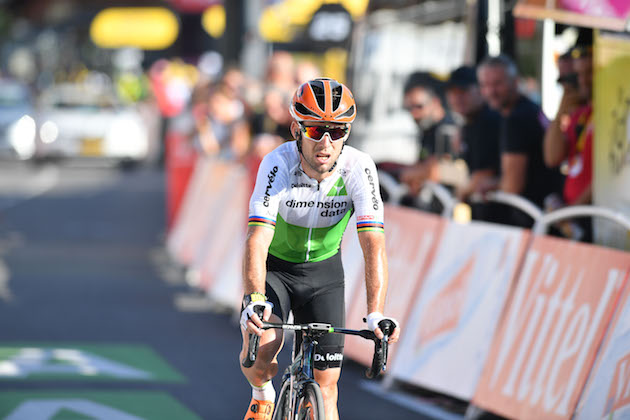Should the Tour de France have bigger time limits for mountain stages?
Riders and directors discuss if the time cuts are too hard for the sprinters in the tough mountain stages


Rick Zabel lies exhausted after struggling to make the time cut on stage 11 of the 2018 Tour de France (Sunada)
The latest race content, interviews, features, reviews and expert buying guides, direct to your inbox!
You are now subscribed
Your newsletter sign-up was successful
Tour de France insiders wonder whether the organiser should offer more lenient time limits to save riders both physically and mentally. Others say these are the rules and tough if you miss the cut like Mark Cavendish and Marcel Kittel on stage 11.
In the short, 108.5 kilometre stage on Wednesday to La Rosière, the riders had to arrive 31 minutes within the winning time of Geraint Thomas or they would be cut. Cavendish and Mark Renshaw (both Team Dimension Data), and Kittel (Katusha-Alpecin) were sent home.
"The only response is that this is the Tour, that's what I tell my riders," Katusha sports director Dimitri Konyshev told Cycling Weekly.
"These stages are so hard. It's a TT for the sprinters, going all out from kilometre zero to get to the finish. It's hard for them, someone who's 90kg, it's hard to climb 5000m.
"Personally, in any case, it's too little time with a hot stage like that and a climbing stage like that. OK, you need some limit, but with three climbs like that, it's too little."
Katusha's Rick Zabel finished three seconds outside the time limit, but the organiser let him continue on stage 12 because of a mechanical problem he had on the final La Rosière climb. No such allowance was made for the others, out by 15 minutes and in Cavendish's case around 35 minutes.
"Yesterday, I was two minutes within time," said Marcel Sieberg (Lotto-Soudal), the tall German lead-out for André Greipel.
The latest race content, interviews, features, reviews and expert buying guides, direct to your inbox!
"It was a time trial for me. I was almost alone the whole race. There was a bigger group in the end, but before, everyone was just riding to get in time. For me, it's hard enough to do it at a normal speed. It was a lot of stress.
"We are not climbers, but we are not going easy. If you have 10 minutes more, then mentally maybe its better. I have to go full gas up and down, so I have no recovery even on the downhill. For me, it looks like the guys in the back are more f**ked than the guys at the front."
The organiser set the limit based on a percentage of the winner's time. Given the short stage and climbing, it bumped it out by two per cent before the stage start.
Though Cavendish, Renshaw and Kittel left the Tour, other sprinters – like Fernando Gaviria, Dylan Groenewegen and Greipel – survived to take on stage 12.

"It's part of our sport, one of the rules we race by," BMC General Manager Jim Ochowicz said.
"There's a time limit, it's not hard to figure out. That's what the second sports director does with those riders. They figure out the cut and give time checks.
"The time cuts are not a mystery, it's not a secret, it's very clear."
"We all have to finish in the time cut," said John Degenkolb (Trek-Segafredo).
"They also knew that. Of course, it's not nice to go home like this. I feel also sad for them, it would have been nice to have Marcel and also Cav here."
"It is one of things that you could debate for ever," added Erik Zabel, former professional, winner of six green jerseys and Rick Zabel's dad.
"If you ask Dylan Groenewegen's sports director, or Gaviria's, then they would say every rider finished in the place they deserve. This is true.
"It happened to me, but it was me and 89 other riders, the Tour let us back in. It was a little shameful, though, I have to say."
Gregor Brown is an experienced cycling journalist, based in Florence, Italy. He has covered races all over the world for over a decade - following the Giro, Tour de France, and every major race since 2006. His love of cycling began with freestyle and BMX, before the 1998 Tour de France led him to a deep appreciation of the road racing season.
